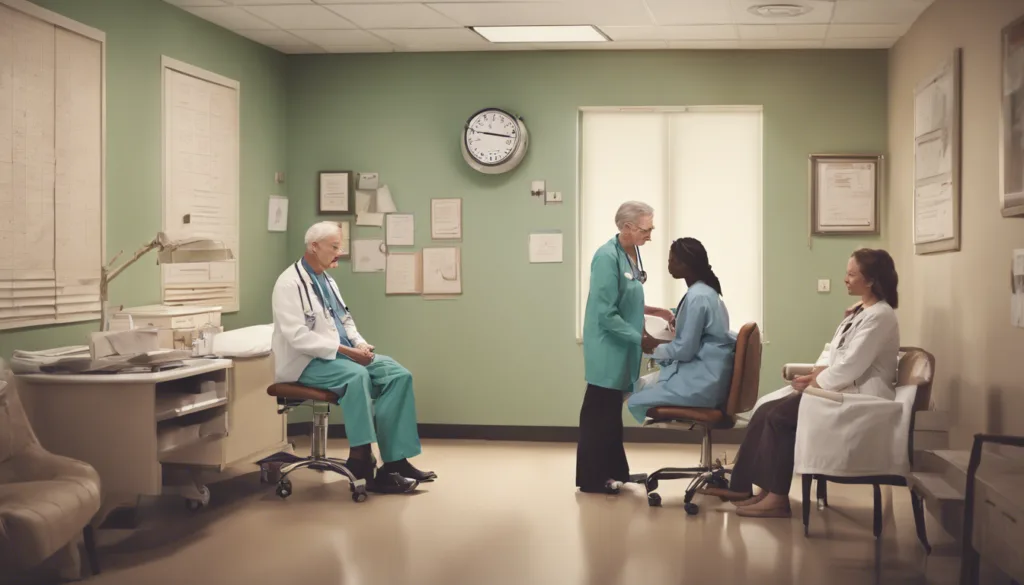5 Essential Tips for Caregivers to Communicate Effectively with Loved One’s Doctors

Effective communication with a loved one’s doctor is a cornerstone of successful healthcare management, particularly for seniors who often face complex health issues.
As a caregiver, you hold a vital role in ensuring that information is conveyed accurately and effectively between your loved one and the healthcare provider.
However, navigating medical appointments can be daunting.
Here are five essential tips designed to equip caregivers with the tools needed for seamless communication, thereby fostering better health outcomes and enhancing the caregiving experience for families managing the challenges of aging.
Let’s dive into how you can prepare for a doctor’s appointment, communicate respectfully, and maintain organization, all while ensuring that your loved one’s needs are met.
Receive quality home care matches today in minutes
Key Takeaways
- Always prepare a list of questions and topics before the doctor’s appointment.
- Maintain respectful and clear communication when discussing health concerns.
- Organize all relevant medical documentation to facilitate effective discussions.
Preparing for the Appointment: Gathering Information
When it comes to navigating the complex world of healthcare for aging loved ones, preparing for the appointment with their doctor is a fundamental step that can significantly improve communication and health outcomes.
Effective communication serves as the bridge between caregivers and healthcare providers, ensuring that the needs and concerns of seniors are prioritized and understood.
Here are five essential tips to enhance this communication process: First, preparation is key; craft a comprehensive list of questions, concerns, and topics to discuss, remembering to include your loved one’s insights and feelings.
Second, be respectful in your approach; use clear, kind, and attentive language when discussing health needs and symptoms, fostering a collaborative environment.
Third, stay organized; bring necessary documentation, such as medical histories and lists of medications, to create informed dialogue and support the physician’s evaluations.
Fourth, don’t hesitate to ask questions during the appointment; clarifying complexities ensures that everyone is on the same page regarding diagnosis and treatment plans.
Finally, follow up after the appointment; check in on any recommendations made by the doctor and talk through the outcomes with your loved one.
By meticulously following these tips, caregivers enhance their ability to communicate effectively with healthcare providers, ultimately leading to improved health outcomes for seniors.
This strategy doesn’t just facilitate a singular appointment but builds a foundation for ongoing, constructive healthcare conversations.
Enhancing Post-Appointment Communication
In today’s healthcare landscape, effective communication with a loved one’s doctor is paramount for ensuring that seniors receive the most appropriate care.
Caregivers play a crucial role in this process, often acting as the primary link between healthcare providers and their aging family members.
To enhance this vital communication, establishing a foundation based on preparation, respect, and follow-up is essential.
For instance, caregivers should prioritize conveying accurate health information and advocating for their loved one’s needs by maintaining an organized approach during medical visits.
This not only fosters a respectful dialogue but also empowers caregivers to clarify any confusing medical jargon, which is common in doctor-patient discussions.
Additionally, the importance of post-appointment dialogue cannot be overstated; discussing follow-up actions and recommendations with your loved one ensures continuity of care and reinforces their understanding of the health strategies put in place.
Overall, implementing these actionable insights will cultivate a more streamlined and effective communication process, leading to better health outcomes and a deeper sense of trust between all parties involved.
With over 6 million seniors in Canada and 93% preferring to age at home, the need to bring quality home care to seniors is urgent. Families want peace of mind, and caregivers deserve respect and support.
Amicare isn’t just a marketplace—it’s a movement for better care. Join our marketplace today and receive quality home care matches in minutes.

